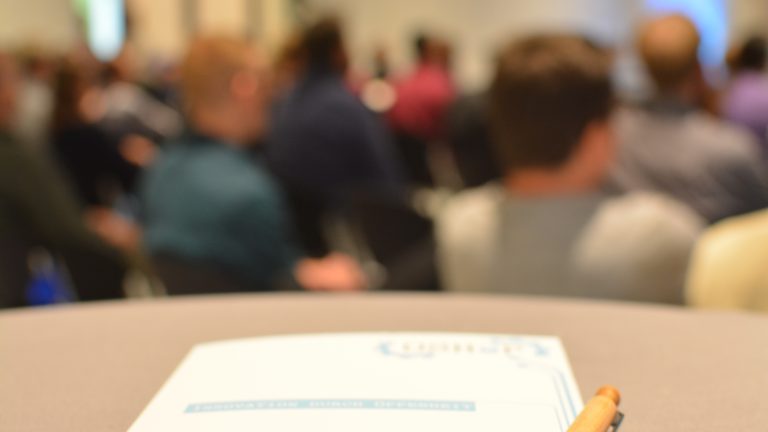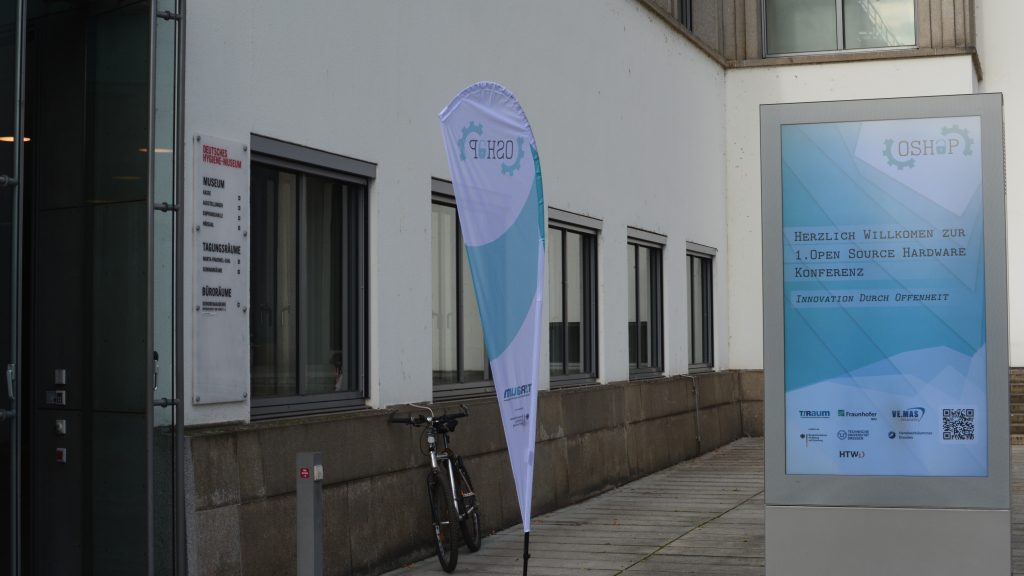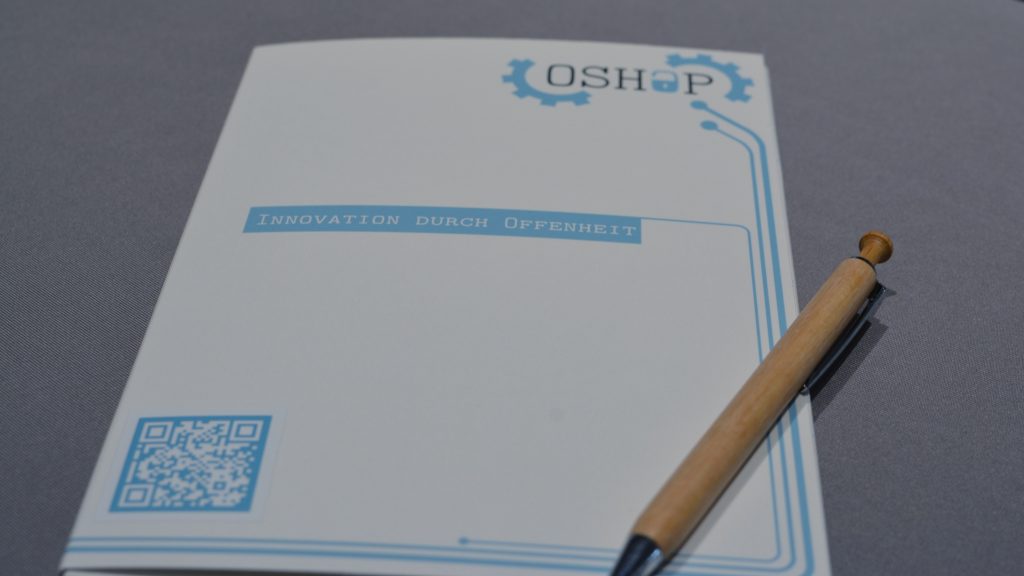With the motto “Innovation through Openness”, the first Germany-wide conference focussing on Open Source Hardware kicked off in Dresden. We were there and report on individual insights, successes and new connections to industry and research.
Two years ago, we became aware of the new project at the HTW Dresden, OSHOP, which is now developing into a network and guide for the Saxony region. The content is extremely useful and provides a new perspective on the landscape of Open Source Hardware in research and industry. Companies and research institutes from the region should definitely make their presence felt here and enter into active co-operation; the project will run for another year and a half. Further conferences are also planned: Save The Date 2025 – 21.10.-24.10.24 in Chemnitz.
An initial media report in video format is already available, as well as individual impressions via social media (example: Mastodon). [1]
Here is the PDF version of the OSH conference programme. We look forward to the follow-up events.
A brief summary of the networking event in extracts
Most of those present were familiar to us, but there were still new faces and players. It was exciting to see how the funding landscape, representatives of various sectors and increasingly new voices from SMEs and research mingled with the pioneers of recent years. It is not yet possible to say whether these are the first signs of the mainstream. Nevertheless, the overall mood is one of optimism. Also present from our network: Open Hardware Allianz, Verbund Offener Werkstätten, Open Knowledge Foundation DE, Mifactory, MNT Research, Open Source Imaging, Open Toolchain Foundation as well as representatives from various makerspaces and research institutions (e.g. OpenLab Hamburg).
After the welcome address and insights from the research project, the first day began with a keynote speech by Tobias Redlich entitled “Sustainable production technology – challenges and opportunities of open source machine tools”, which used the OpenLab Starter Kit as an example to illustrate the various new approaches and opportunities for “innovation through openness”.
In addition to Lars Zimmermann’s new “Ikego” project, we were also able to give a presentation ourselves on the main stage. Martin Häuer and Timm Wille, representing two organisations (OSE Germany e.V. and OSI² e.V.), presented for the first time the importance of holistic design and standards in the development of open source hardware under the title:“OSH – Holistic Design, Standards and Documentation in Medical Technology” (slides). The extensive use of Git for version and variant management in the engineering sector was particularly impressive. This still seems to be a novelty in classic product development.
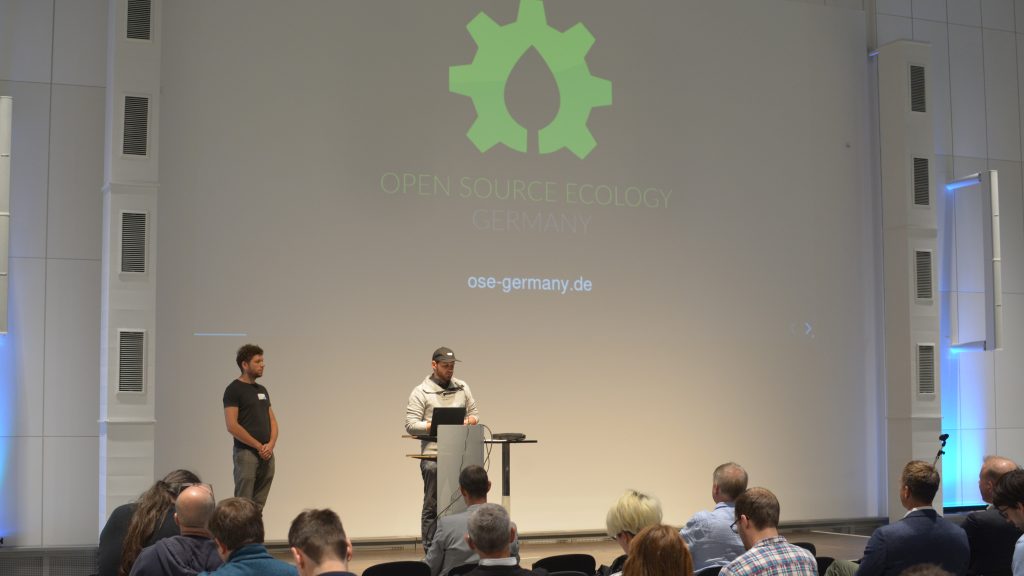
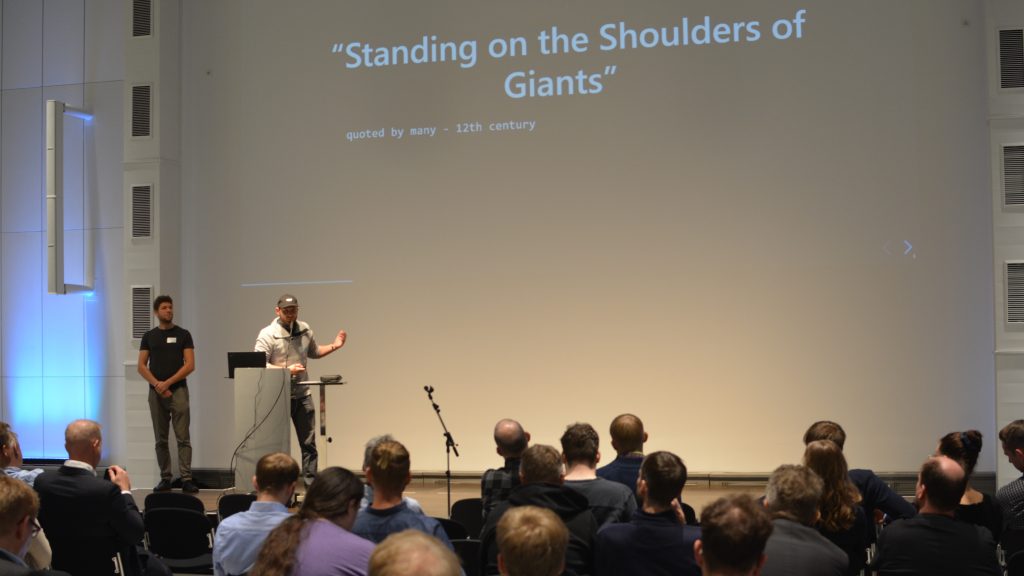
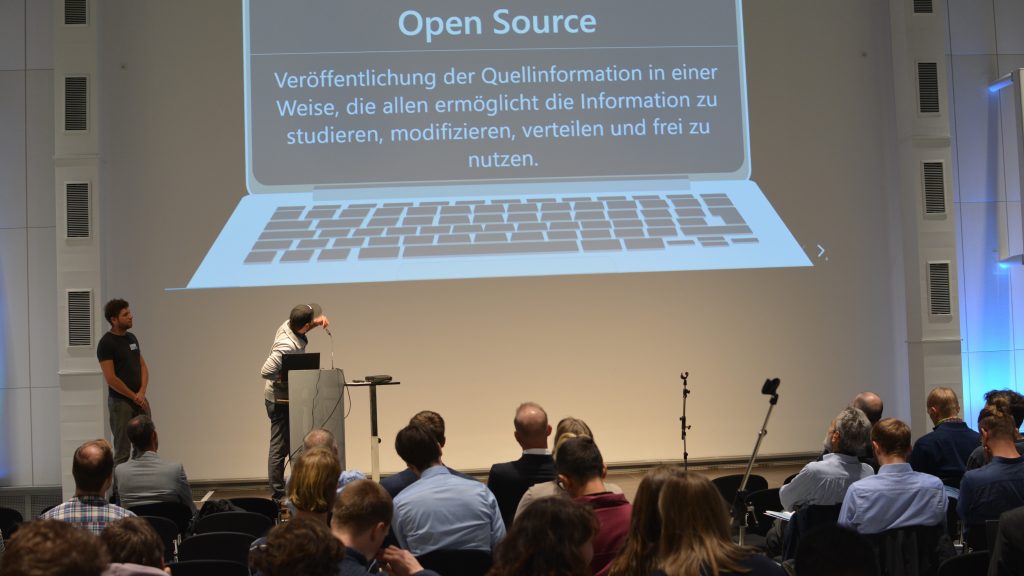
In addition to various discussions with the exhibitors and people from the network, there was a joint offer of an “Open Source Hardware Consultation Hour” in which colleagues Martin Häuer, Marcel Partap, Michel Langhammer and Maximilian Voigt exchanged ideas with others about their questions and project challenges in the context of hardware development.
In the afternoon, there were also two discussion tables from our ranks by Marcel Partap on “Challenges and Potentials of
Generative OS Engineering AI for Sustainable and Cooperative Technology Development” and Timm Wille on “Open Source Software Ecosystems for Engineers and Designers”.
The first day was intense, full of inspiration and many conversations. New contacts were made, and old ones warmed up. We were able to clear up some misunderstandings about licences, with confusion and openwashing blurring together here. We will address this chapter separately. There is clearly a need for more (personal) dialogue and easy-to-understand examples and information material similar to our first brochure. One example that we had not heard of before: OpenTransfer. We hope to be able to co-operate on a new edition of the OSH brochure. A separate information website is to be created. We will report on this. Not only these new encounters with research show: the network is growing, the topic of “Open Source Hardware” is becoming better known and completely new co-operations are possible via various nodes. Talks were also held with industry. For example, the company SolarInvert presented its modular inverter and its approach to making its design freely available. Unfortunately, a suitable open source licence is still missing, which is why free use is not yet guaranteed. We are happy to accompany this process and provide support in answering any open questions.
Content template for an “open circular society”
It was particularly noteworthy on the first day that there were many contributions from the areas of openness, modularity, repair, circular economy and socio-ecological transformation. Proposed solutions were presented, the reference boundary to open technology development was outlined and new challenges were also addressed. There was an astonishingly large overlap in the content, which dealt with the issues of sustainability and future-proof innovations in a completely new way with the topic of a possible “circular society”, even if this term only appeared in our presentation. We hope that, in addition to the idea of innovation, new pioneering fields and projects will emerge that will provide a wide range of insights into an “Open Circular Society”. We will also publish further content on this topic in an appropriate place.
Findings and outlook
The exchange round started on the first day could not be continued quite as intensively on the second day, as the event was split between two locations. In future, it would be desirable to have a little more space for the conclusion of new co-operations or general networking. The programme was geared towards workshops and, in addition to introductions to other topics such as a KiCAD workshop, there was also an in-depth presentation by Michel Langhammer on the context of “Open Source Hardware and Cyber-Physical Production Systems”. Open standards such as DIN SPEC 3105, open knowledge, open development and “open toolchains” were presented as the basis for new distributed manufacturing and collaboration in “cyber-physical space”. Other exciting approaches such as “valueflows” and framework conditions for a functioning overall system were presented as examples.
In the discussions, the need to catch up, but also the interest in good documentation and the correct use of open source licences, especially for hardware, became particularly clear. At the same time, however, there is a growing understanding and basic knowledge of the topic, which makes it much easier to exchange ideas and find solutions.
Overall, we are delighted with the selection of transdisciplinary participants, programmes and networking opportunities in a growing field. The synergies, especially in the area of sustainability topics, became visible, as well as new opportunities for cooperation, as mentioned above. We would like to take this opportunity to thank you for the great organisation and moderation and to give you a further outlook for possible cooperation that emerged at the event.
Open Source Hardware meta-data search platform, a prelude to intensive cooperation?
It became clear at the conference that we have very similar goals and project plans. A very concrete collaboration could result in the development of meta-data standards and a platform for the global search of Open Source Hardware (OSH). We have successfully submitted our current project in the 5th and final NGI Search funding round “Towards a Linked Data Powered Hardware Design Search Ecosystem”. It will re-implement the “Open Know How” standard and improve existing Linked Data and other tools as well as add new ones to provide a solid backend for a distributive and crawler extensible hardware search. We also want to set up a demo platform for OSH search and automated validations and evaluations by June 2025. We will provide further insights into this at a suitable point and report on the project in detail.

